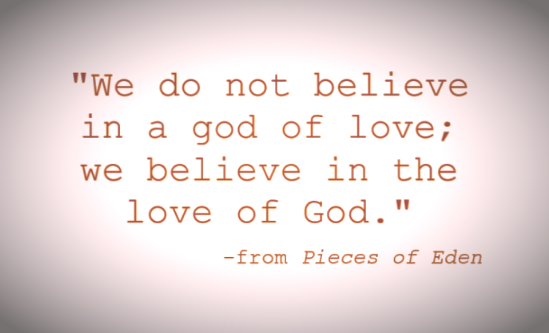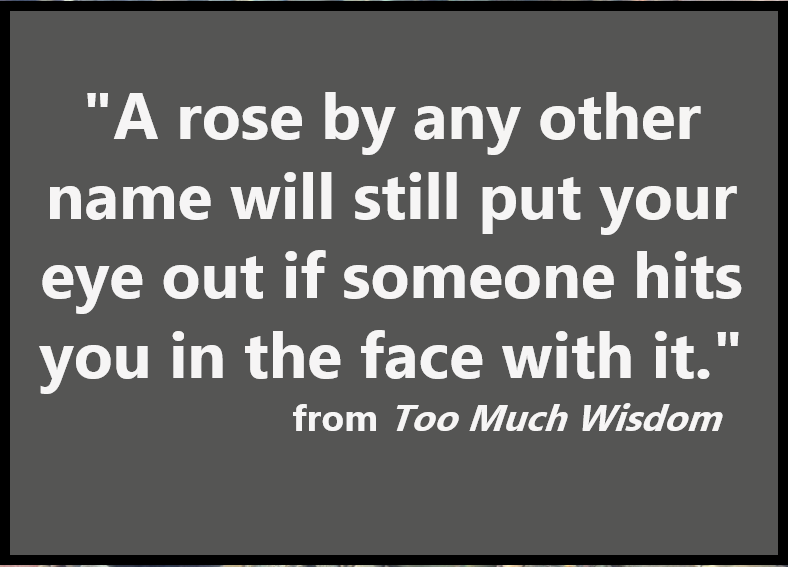|
When an idea generates too much heat in public debate, it can have the same effect as when a stove generates too much heat under your grilled-cheese sandwich; and the results are similar.
Recently, I re-read Sir John Glubb’s treatise, The Fate of Nations, in which he highlights several observable characteristics of nations and empires in decline, across centuries and continents. One of those characteristics is what’s called “Intellectualism”. The “ism” on the end of that word tells you what you need to know about it: It’s a pervasive faith in the human intellect. This faith is both implacable and unwarranted. Basically – it’s a cult of knowledge. Here’s his description of a culture which is deep into such a stage: “Intellectualism leads to discussion, debate & argument... [while] public affairs drift from bad to worse, amid an unceasing cacophony of argument.” An unceasing cacophony of argument. That’s where we’re at right now, and there’s no indication on the horizon that we will emerge stronger or more enlightened from this cultural moment of confusion. In fact, there aren’t even any indications that we could if we wanted to. I acknowledge that by adding another post to the shouting-match of American discourse, I’m essentially cranking up the burner another notch. However, the sandwich is going to be ruined whether you keep adding heat or whether you just ignore it. So since everyone else is using their God-given right to speak freely, I’m going to do so as well. I’m going to take a moment here to acknowledge that the cheese is on fire and that we ought to do something about it even though I know we won’t. Concrete examples are important, and the one I’m going to use (and I’m certain that this will be offensive to many people) is an essay by Phil Christman, an instructor at the University of Michigan. It’s interesting, as all travesties are, and the topic under consideration is the question “What Is It Like to Be a Man?”. In that essay, Christman gets very real about his personal struggles to understand his own masculinity in our current culture. Christman is clearly extremely bright; he’s also well-educated and articulate. Judging from this essay, he’s self-aware to a degree, and thoughtful. He writes beautifully and with feeling. And he’s also (again, judging from this article) a complete victim of the cult of Intellectualism. As he tries to come to terms with the fact that he has not inherited a functional definition of manhood from post-modernism, he tries to identify elements within himself that will help him discern what it is. Along the way he encounters famous – and infamous – intellectuals such as Simone de Beauvoir and Jordan Peterson, who each contribute something to the froth in his mind; but none of it is helpful. De Beauvoir shows him that discussions about womanhood are more interesting and affirming than any such discussions about masculinity. Peterson shows him that people who want to affirm traditional masculine virtues are spouting “unsophisticated opinion”. He laments that we “have plenty of talk about masculinity, but talk is all it is, aimless and nonconsecutive, never the sense of anything developing.” He refers to Norah Vincent’s memoir about having spent a year dressed as a man (possibly the most convoluted source available) and tries to find in it some help understanding male aggression. He sprinkles in supporting observations by “political theorist and pundit Harvey Mansfield”. He mines pop-culture as well, borrowing from The Godfather, Breaking Bad, and Riverdale. Anthropologists (Peter McAllister!) and sociologists (Arlie Russell Hochschild!) contribute additional data but no clarity to his conundrum. Quotations from famous Christians (Chesterton and Lewis) lend a sheen of spiritual seriousness. A science fiction novel from the ‘70s about an attempt to “revive True Manliness in a polymorphously perverse far future” loiters around near the end of his article; unsurprisingly, it doesn’t make things better. His reference to this novel simply underscores the fact that, not only has the confusion of our present moment been building up slowly, but it has also reached what turns out to have been a predictable and ludicrous outcome. Intellect is a gift, and it is finite, being limited by the very fallible human beings who wield it. Intellectualism makes that gift into an idol. Whenever we make an idol, we very naturally expect it to give us insights and clarity, to help us understand ourselves and our place in the world. That’s one function of the gods. But if our gods are imaginary, the insights we need from them will never materialize; that, or we’ll come up with substitute insights, just like methane can be substituted for oxygen – but not without killing us. Basically, I’m lamenting Mr. Christman’s entire, painful confession. Throughout, he derives no helpful wisdom, comes to no life-giving conclusions, and undercuts his own prior understanding. By the end, he’s grateful to partake in the kind of hapless, clueless maleness which exists in our consciousness as a joke because, being a joke, at least he can reassure himself that he’s not toxic. This is where we’ve come: We don’t know what we’re supposed to be, we only know what we should avoid, so we take refuge in maleness as a joke with ourselves as the punchline. (Actually, insofar as that’s true, women, being human, must be part of the joke as well, and the only advantage men might have at this point is that at least society forces us men to confront our own absurdity.) The problem with seeing ourselves as a cosmic joke is that the human race really does have dignity. If we didn’t, Christman wouldn’t have a conundrum in the first place! He senses he was made for greatness but his life’s experience, his culture, his education, and his network of friends, all tell him that he’s the comic relief. He assumes that traditional Masculinity, a very ancient concept, has been discredited by several recent generations of highly enlightened and obtuse thinkers who believe all traditions (especially Masculinity) are a farce, and several concurrent generations of loudmouthed macho pop-influencers who seem intent on proving them right. There’s no question that he has a puzzle, that it affects him deeply, and that it will require some resolution if he’s going to ever be at peace in his own soul. Because he’s so smart, Christman looks to two sources for some help. He looks at his own experience, and at the collected wisdom of the modern intelligentsia which has set itself up as the progressive alternative to centuries of old, human wisdom; the new traditions handed down to today's generation. The problem – or, one of the most obvious problems – is that the intelligentsia is composed of lost modern souls every bit as bewildered and unfocused as Christman himself. That’s why he ends up looking at apocalyptic sex novels and cross-dressing women spying on male culture, together with some professorial observers and script-writers, in a misguided and pointless effort to gain clarity. He hasn’t simply interacted with their ideas; he has relied on them, and of course they let him down. Instead of making his situation better, Intellectualism makes it worse. He looked for insight, and in return the wise leaders of this world gave him an unceasing cacophony of argument. He dug a deep well into the best available modern thinkers, but that well turns out to have been cracked, leaky, and empty. When he dropped a bucket hoping for some spiritual refreshment, it came back up dry. We’ve abandoned a working well for one that has nothing to offer. And in our useless efforts it’s always the same: artists and academics. Christman’s conclusions demonstrate the ultimate insufficiency of Intellectualism. Intelligence is like a sword; if you use it as it was intended, it’s an incredibly valuable tool. But if you lean on it for support, you will either collapse and fall, or pierce yourself through. One of the things that I love most about following Jesus Christ is that he cuts straight through so much of the BS. Here’s poor Christman, muddled and tormented about his basic identity, tortured by who he is... or by who his culture tells him he is. Or isn’t. Or something. Meanwhile, if he looked beyond the voices of the intellectuals to the real source, if he trusted human processes a little less and the authority of Jesus Christ a lot more, the pressure of our society’s disaffection with masculinity wouldn’t weigh him down so much. At the very least, he'd realize that he can trust Jesus with the answers until such time as those answers become a little less opaque to the rest of us. Jesus acknowledged that it’s important for us to find ourselves, to make sense of our identity, our nature, our essential being; and he gives us hope that we will find our lives, but only after we lose them. That brings us directly back to Christman, because it’s obvious that through his reliance on intellect – his own, and others’ – he has lost something. He’s lost himself. He’s lost his life. That may turn out to be helpful - but then again, if you know what Jesus said, then you know that simply “losing your life” isn’t enough. I know, I know; ‘not all who wander are lost’. But most of them are. Just straggling along, disconnected from meaning and purpose, disconnected from who you were made to be, aimless, wandering, meandering, lost... that’s not enough. You have to lose yourself for the right reason – for Christ’s sake. We’re an entire lost generation depending on Intellectualism to save us. But Intellectualism can’t offer salvation, because intellectuals are just as dumb as the rest of us. Turns out we’re all lost, and for all the wrong reasons.
0 Comments
Leave a Reply. |
Click on the link to go right to Josh's Amazon Author page.www.amazon.com/Josh-McFarland/e/B0868TJ4CP/ref=dp_byline_cont_book_1 Archives
February 2021
Categories |
Site powered by Weebly. Managed by Hostgator




 RSS Feed
RSS Feed